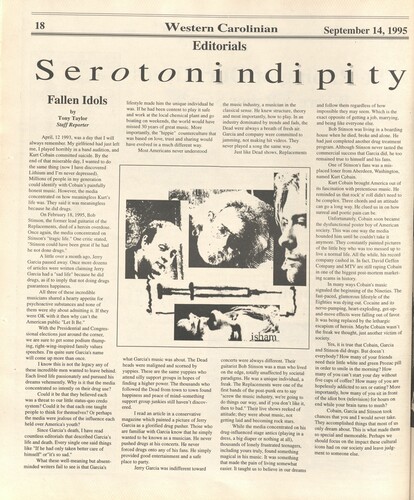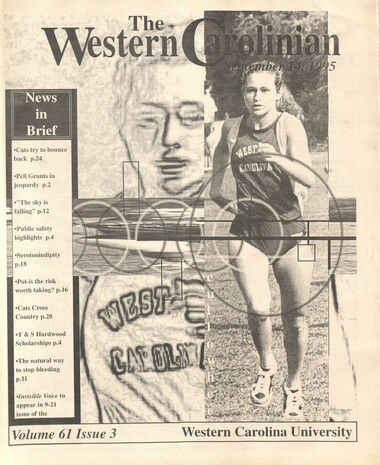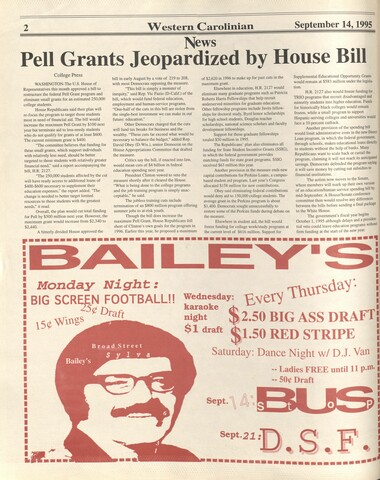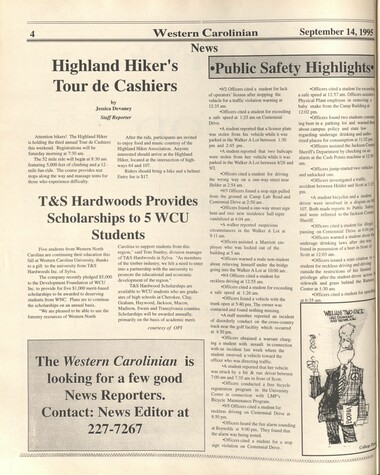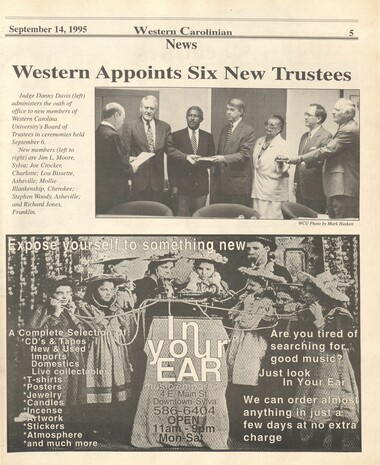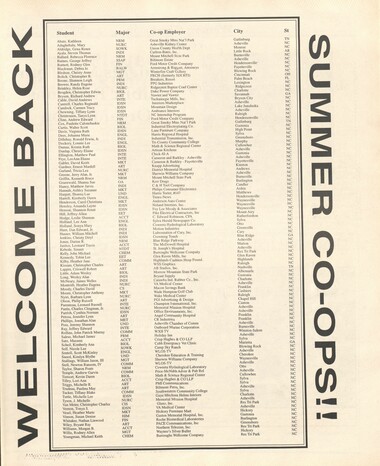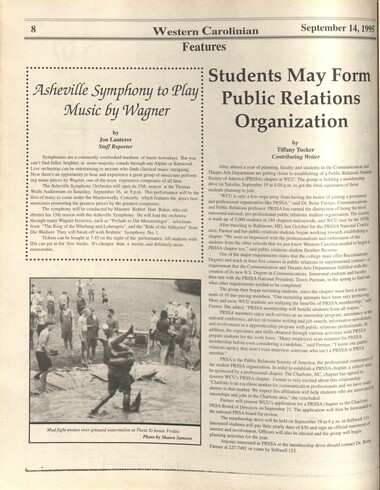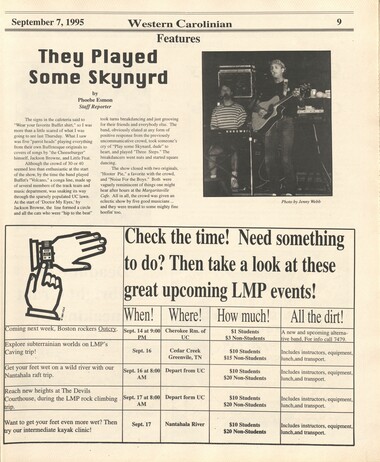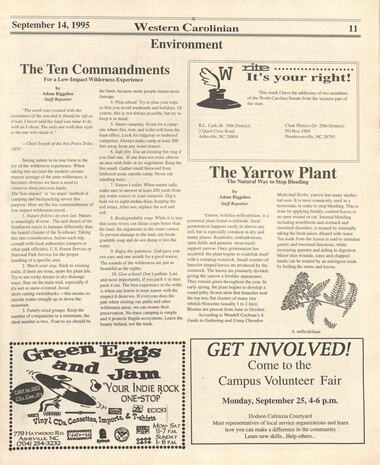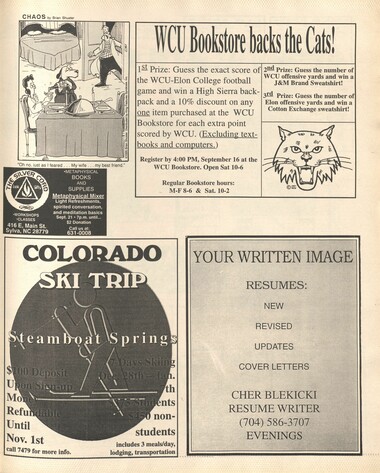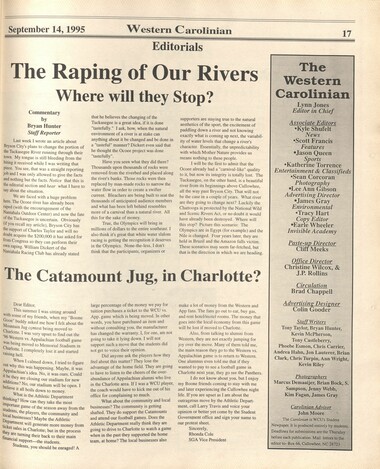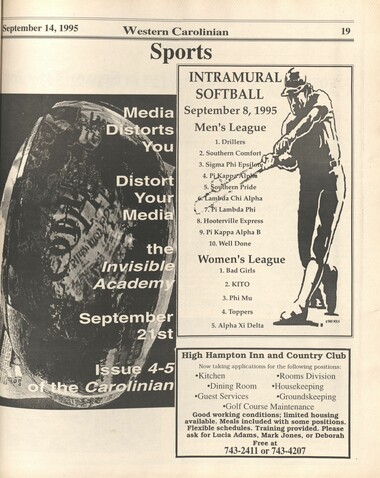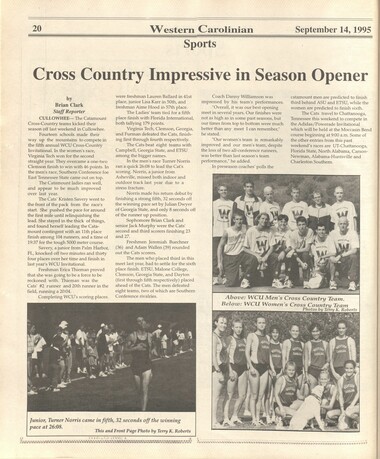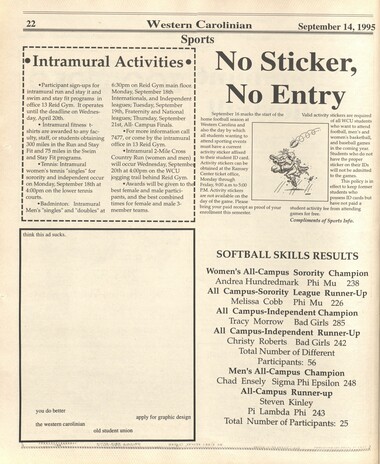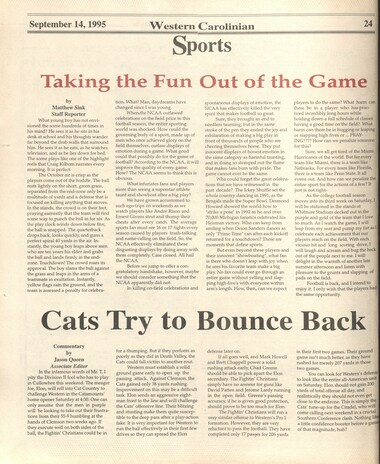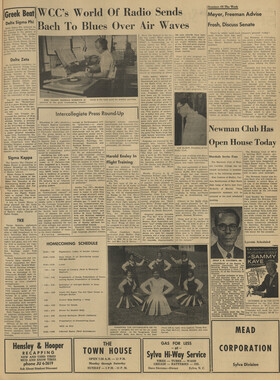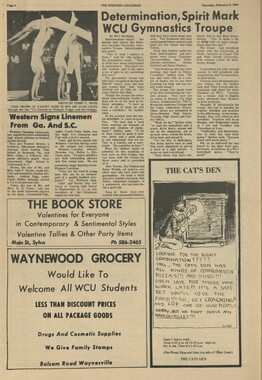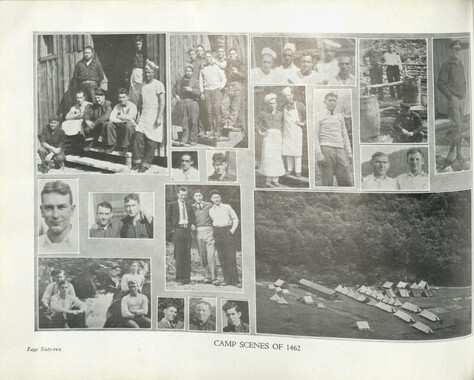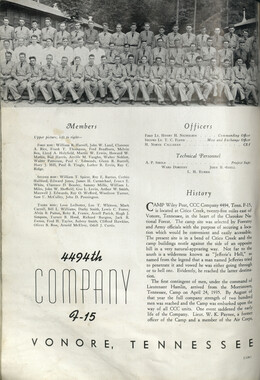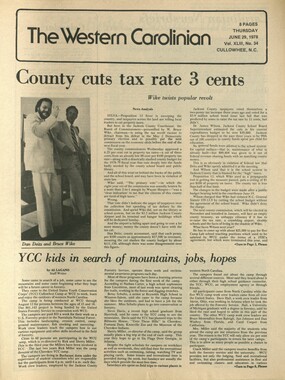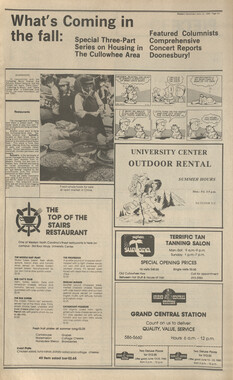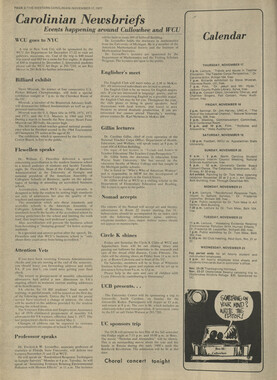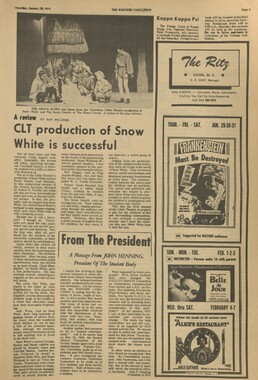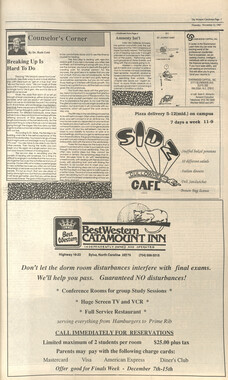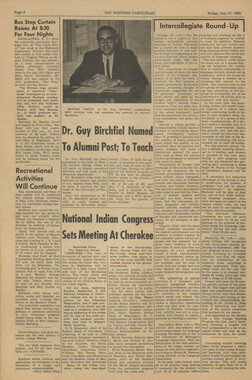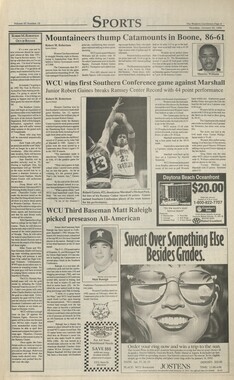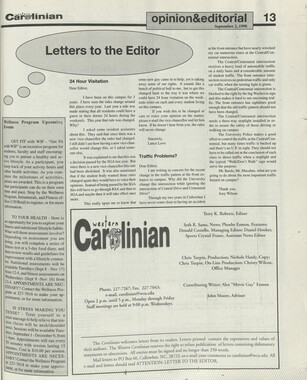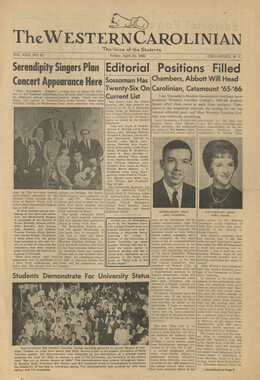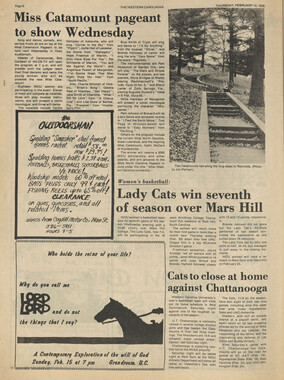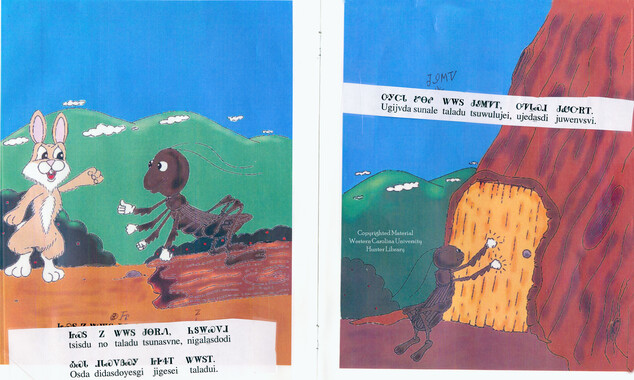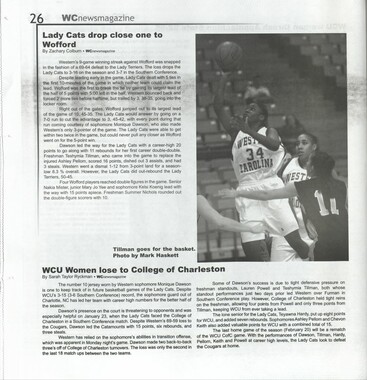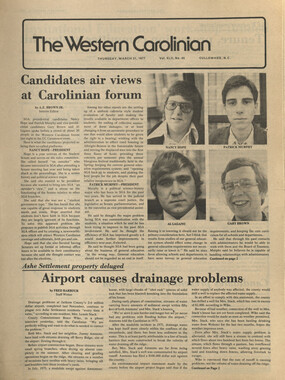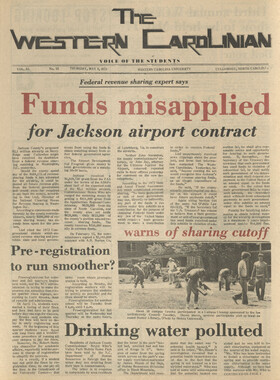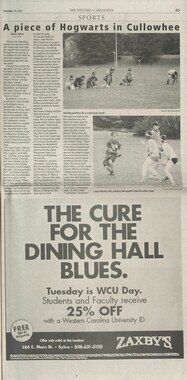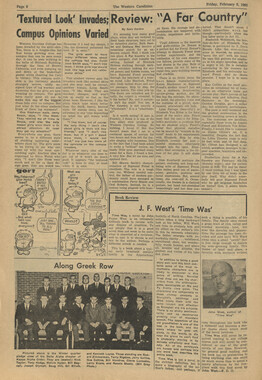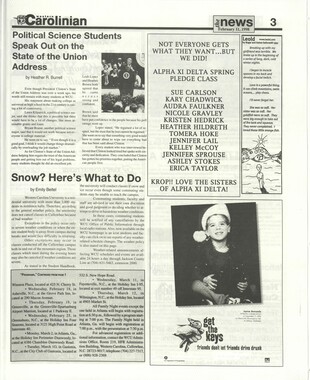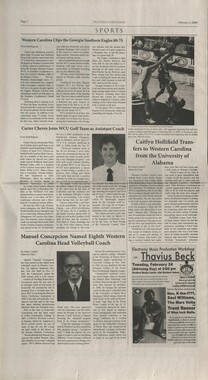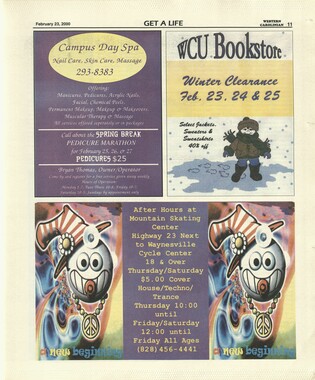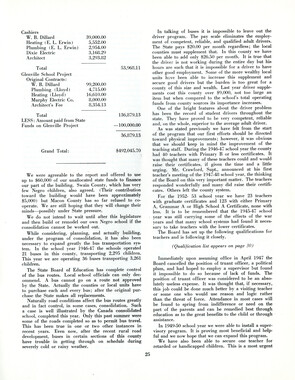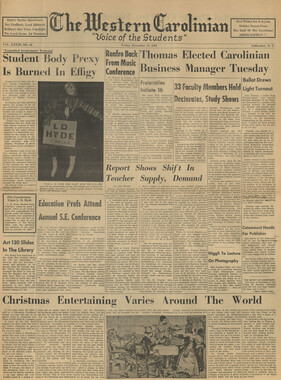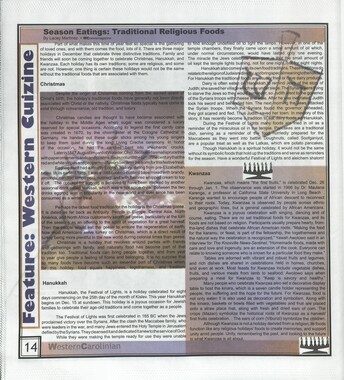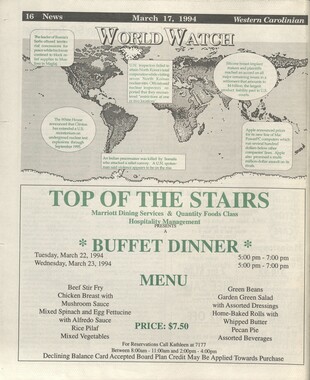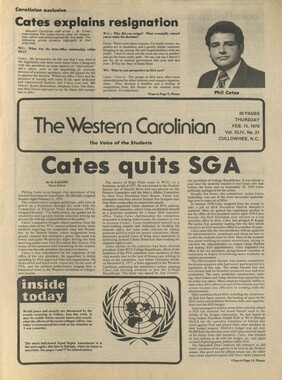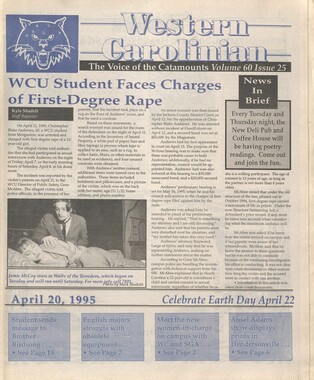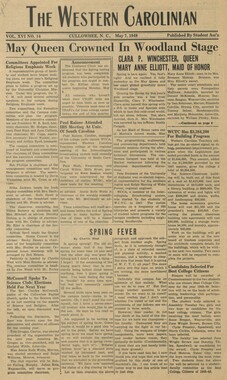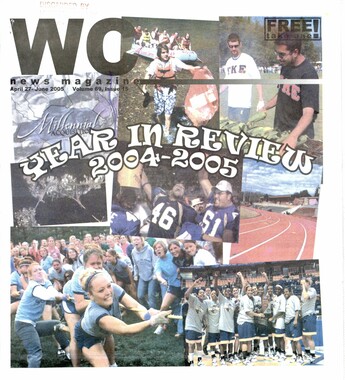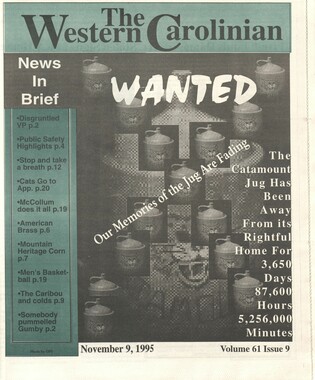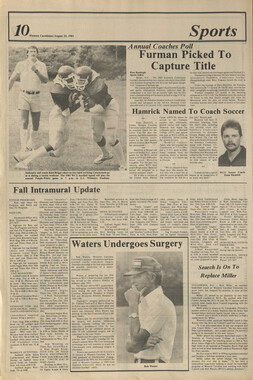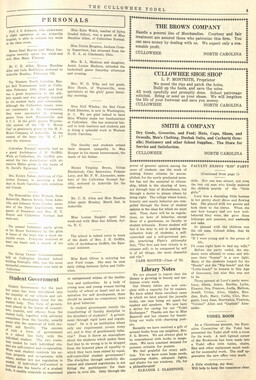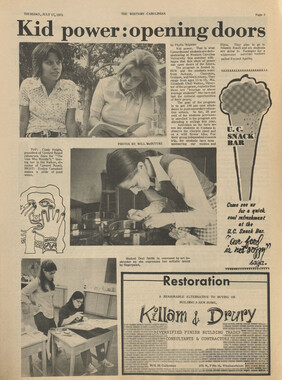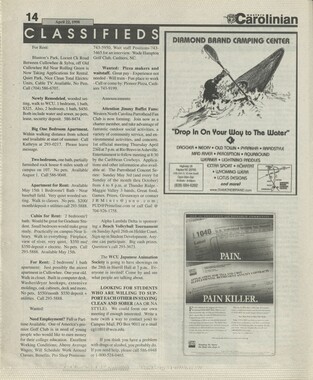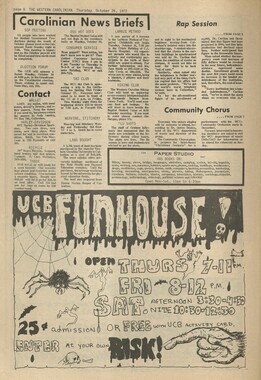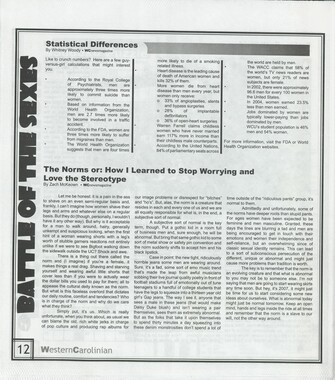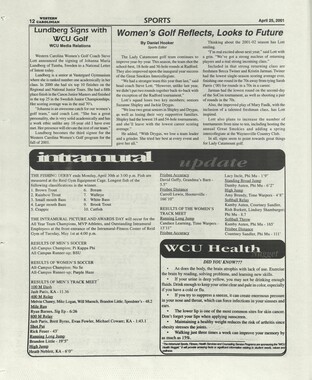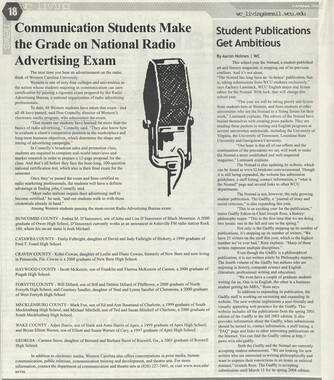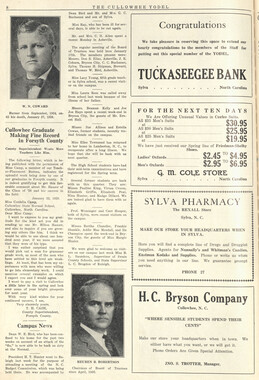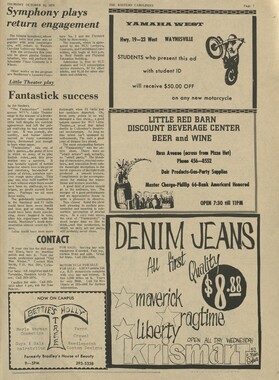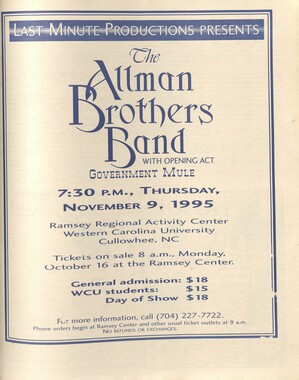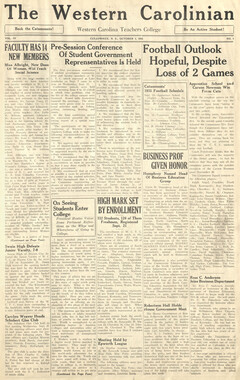Western Carolina University (21)
View all
- Canton Champion Fibre Company (2308)
- Cherokee Traditions (291)
- Civil War in Southern Appalachia (165)
- Craft Revival (1942)
- George Masa Collection (137)
- Great Smoky Mountains - A Park for America (3080)
- Highlights from Western Carolina University (422)
- Horace Kephart (998)
- Journeys Through Jackson (159)
- LGBTQIA+ Archive of Jackson County (90)
- Oral Histories of Western North Carolina (318)
- Picturing Appalachia (6617)
- Stories of Mountain Folk (413)
- Travel Western North Carolina (153)
- Western Carolina University Fine Art Museum Vitreograph Collection (129)
- Western Carolina University Herbarium (92)
- Western Carolina University: Making Memories (738)
- Western Carolina University Publications (2491)
- Western Carolina University Restricted Electronic Theses and Dissertations (146)
- Western North Carolina Regional Maps (71)
- World War II in Southern Appalachia (131)
University of North Carolina Asheville (6)
View all
- Allanstand Cottage Industries (62)
- Appalachian National Park Association (53)
- Bennett, Kelly, 1890-1974 (1463)
- Berry, Walter (76)
- Brasstown Carvers (40)
- Carver, George Washington, 1864?-1943 (26)
- Cathey, Joseph, 1803-1874 (1)
- Champion Fibre Company (233)
- Champion Paper and Fibre Company (297)
- Cherokee Indian Fair Association (16)
- Cherokee Language Program (22)
- Crowe, Amanda (40)
- Edmonston, Thomas Benton, 1842-1907 (7)
- Ensley, A. L. (Abraham Lincoln), 1865-1948 (275)
- Fromer, Irving Rhodes, 1913-1994 (70)
- George Butz (BFS 1907) (46)
- Goodrich, Frances Louisa (120)
- Grant, George Alexander, 1891-1964 (96)
- Heard, Marian Gladys (60)
- Kephart, Calvin, 1883-1969 (15)
- Kephart, Horace, 1862-1931 (313)
- Kephart, Laura, 1862-1954 (91)
- Laney, Gideon Thomas, 1889-1976 (439)
- Masa, George, 1881-1933 (61)
- McElhinney, William Julian, 1896-1953 (44)
- Niggli, Josephina, 1910-1983 (10)
- North Carolina Park Commission (105)
- Osborne, Kezia Stradley (9)
- Owens, Samuel Robert, 1918-1995 (11)
- Penland Weavers and Potters (36)
- Roberts, Vivienne (15)
- Roth, Albert, 1890-1974 (142)
- Schenck, Carl Alwin, 1868-1955 (1)
- Sherrill's Photography Studio (2565)
- Southern Highland Handicraft Guild (127)
- Southern Highlanders, Inc. (71)
- Stalcup, Jesse Bryson (46)
- Stearns, I. K. (213)
- Thompson, James Edward, 1880-1976 (226)
- United States. Indian Arts and Crafts Board (130)
- USFS (683)
- Vance, Zebulon Baird, 1830-1894 (1)
- Weaver, Zebulon, 1872-1948 (58)
- Western Carolina College (230)
- Western Carolina Teachers College (282)
- Western Carolina University (2008)
- Western Carolina University. Mountain Heritage Center (18)
- Whitman, Walt, 1819-1892 (10)
- Wilburn, Hiram Coleman, 1880-1967 (73)
- Williams, Isadora (3)
- Cain, Doreyl Ammons (0)
- Crittenden, Lorraine (0)
- Rhodes, Judy (0)
- Smith, Edward Clark (0)
- Appalachian Region, Southern (3032)
- Asheville (N.C.) (1945)
- Avery County (N.C.) (26)
- Blount County (Tenn.) (195)
- Buncombe County (N.C.) (1680)
- Cherokee County (N.C.) (283)
- Clay County (N.C.) (556)
- Graham County (N.C.) (238)
- Great Smoky Mountains National Park (N.C. and Tenn.) (535)
- Haywood County (N.C.) (3573)
- Henderson County (N.C.) (70)
- Jackson County (N.C.) (4926)
- Knox County (Tenn.) (35)
- Knoxville (Tenn.) (13)
- Lake Santeetlah (N.C.) (10)
- Macon County (N.C.) (421)
- Madison County (N.C.) (216)
- McDowell County (N.C.) (39)
- Mitchell County (N.C.) (135)
- Polk County (N.C.) (35)
- Qualla Boundary (982)
- Rutherford County (N.C.) (78)
- Swain County (N.C.) (2185)
- Transylvania County (N.C.) (270)
- Watauga County (N.C.) (12)
- Waynesville (N.C.) (86)
- Yancey County (N.C.) (72)
- Aerial Photographs (3)
- Aerial Views (60)
- Albums (books) (4)
- Articles (1)
- Artifacts (object Genre) (228)
- Bibliographies (1)
- Biography (general Genre) (2)
- Cards (information Artifacts) (38)
- Clippings (information Artifacts) (193)
- Copybooks (instructional Materials) (3)
- Crafts (art Genres) (622)
- Depictions (visual Works) (21)
- Design Drawings (1)
- Digital Moving Image Formats (2)
- Drawings (visual Works) (185)
- Envelopes (115)
- Exhibitions (events) (1)
- Facsimiles (reproductions) (1)
- Fiction (general Genre) (4)
- Financial Records (12)
- Fliers (printed Matter) (67)
- Glass Plate Negatives (381)
- Guidebooks (2)
- Internegatives (10)
- Interviews (823)
- Land Surveys (102)
- Letters (correspondence) (1070)
- Manuscripts (documents) (618)
- Maps (documents) (177)
- Memorandums (25)
- Minutes (administrative Records) (59)
- Negatives (photographs) (6090)
- Newsletters (1290)
- Newspapers (2)
- Notebooks (8)
- Occupation Currency (1)
- Paintings (visual Works) (1)
- Pen And Ink Drawings (1)
- Periodicals (194)
- Personal Narratives (10)
- Photographs (12977)
- Plans (maps) (1)
- Poetry (6)
- Portraits (4568)
- Postcards (329)
- Programs (documents) (181)
- Publications (documents) (2444)
- Questionnaires (65)
- Relief Prints (26)
- Sayings (literary Genre) (1)
- Scrapbooks (282)
- Sheet Music (2)
- Slides (photographs) (402)
- Songs (musical Compositions) (2)
- Sound Recordings (802)
- Specimens (92)
- Speeches (documents) (18)
- Tintypes (photographs) (8)
- Transcripts (329)
- Text Messages (0)
- A.L. Ensley Collection (275)
- Appalachian Industrial School Records (7)
- Appalachian National Park Association Records (336)
- Axley-Meroney Collection (2)
- Bayard Wootten Photograph Collection (20)
- Bethel Rural Community Organization Collection (7)
- Blumer Collection (5)
- C.W. Slagle Collection (20)
- Canton Area Historical Museum (2110)
- Carlos C. Campbell Collection (462)
- Cataloochee History Project (64)
- Cherokee Studies Collection (4)
- Daisy Dame Photograph Album (5)
- Daniel Boone VI Collection (1)
- Doris Ulmann Photograph Collection (112)
- Elizabeth H. Lasley Collection (1)
- Elizabeth Woolworth Szold Fleharty Collection (4)
- Frank Fry Collection (95)
- George Masa Collection (173)
- Gideon Laney Collection (452)
- Hazel Scarborough Collection (2)
- Hiram C. Wilburn Papers (28)
- Historic Photographs Collection (236)
- Horace Kephart Collection (861)
- Humbard Collection (33)
- Hunter and Weaver Families Collection (1)
- I. D. Blumenthal Collection (4)
- Isadora Williams Collection (4)
- Jesse Bryson Stalcup Collection (47)
- Jim Thompson Collection (224)
- John B. Battle Collection (7)
- John C. Campbell Folk School Records (80)
- John Parris Collection (6)
- Judaculla Rock project (2)
- Kelly Bennett Collection (1482)
- Love Family Papers (11)
- Major Wiley Parris Civil War Letters (3)
- Map Collection (12)
- McFee-Misemer Civil War Letters (34)
- Mountain Heritage Center Collection (4)
- Norburn - Robertson - Thomson Families Collection (44)
- Pauline Hood Collection (7)
- Pre-Guild Collection (2)
- Qualla Arts and Crafts Mutual Collection (12)
- R.A. Romanes Collection (681)
- Rosser H. Taylor Collection (1)
- Samuel Robert Owens Collection (94)
- Sara Madison Collection (144)
- Sherrill Studio Photo Collection (2558)
- Smoky Mountains Hiking Club Collection (616)
- Stories of Mountain Folk - Radio Programs (374)
- The Reporter, Western Carolina University (510)
- Venoy and Elizabeth Reed Collection (16)
- WCU Gender and Sexuality Oral History Project (36)
- WCU Mountain Heritage Center Oral Histories (25)
- WCU Oral History Collection - Mountain People, Mountain Lives (71)
- WCU Students Newspapers Collection (1923)
- Western North Carolina Tomorrow Black Oral History Project (69)
- William Williams Stringfield Collection (2)
- Zebulon Weaver Collection (109)
- African Americans (390)
- Appalachian Trail (35)
- Artisans (521)
- Cherokee art (84)
- Cherokee artists -- North Carolina (10)
- Cherokee language (21)
- Cherokee pottery (101)
- Cherokee women (208)
- Church buildings (190)
- Civilian Conservation Corps (U.S.) (111)
- College student newspapers and periodicals (2012)
- Dams (108)
- Dance (1023)
- Education (222)
- Floods (63)
- Folk music (1015)
- Forced removal, 1813-1903 (2)
- Forest conservation (220)
- Forests and forestry (1198)
- Gender nonconformity (4)
- Great Smoky Mountains National Park (N.C. and Tenn.) (181)
- Hunting (47)
- Landscape photography (25)
- Logging (122)
- Maps (83)
- Mines and mineral resources (9)
- North Carolina -- Maps (18)
- Paper industry (38)
- Postcards (255)
- Pottery (135)
- Railroad trains (72)
- Rural electrification -- North Carolina, Western (3)
- School integration -- Southern States (2)
- Segregation -- North Carolina, Western (5)
- Slavery (5)
- Sports (452)
- Storytelling (243)
- Waterfalls -- Great Smoky Mountains (N.C. and Tenn.) (66)
- Weaving -- Appalachian Region, Southern (280)
- Wood-carving -- Appalachian Region, Southern (328)
- World War, 1939-1945 (174)
Western Carolinian Volume 61 Number 03 (04)
Item
Item’s are ‘child’ level descriptions to ‘parent’ objects, (e.g. one page of a whole book).
-
-
18 Western Carolinian September 14,1995 Editorials Ser<9t6>ni ndi pi ty Fallen Idols by Tony Taylor Staff Reporter April, 12 1993, was a day that I will always remember. My girlfriend had just left me, I played horribly in a band audition, and Kurt Cobain committed suicide. By the end of that miserable day, I wanted to do the same thing (now I have discovered Lithium and I'm never depressed). Millions of people in my generation could identify with Cobain's painfully honest music. However, the media concentrated on how meaningless Kurt's life was. They said it was meaningless because he did drugs. On February 18, 1995, Bob Stinson, the former lead guitarist of the Replacements, died of a heroin overdose. Once again, the media concentrated on Stinson's "tragic life." One critic stated, "Stinson could have been great if he had he not done drugs." A little over a month ago, Jerry Garcia passed away. Once more dozens of articles were written claiming Jerry Garcia had a "sad life" because he did drugs, as if to imply that not doing drugs guarantees happiness. All three of these incredible musicians shared a hearty appetite for psychoactive substances and none of them were shy about admitting it. If they were OK with it then why can't the American public "Let It Be." With the Presidential and Congressional elections just around the corner, we are sure to get some podium thumping, right-wing-inspired family values speeches. I'm quite sure Garcia's name will come up more than once. I know this is not the legacy any of these incredible men wanted to leave behind, Each lived life passionately and pursued his dreams vehemently. Why is it that the media concentrated so intently on their drug use? Could it be that they believed each was a threat to our little status-quo credo system? Could it be that each one taught people to think for themselves? Or perhaps the media were jealous of the influence each held over America's youth? Since Garcia's death, I have read countless editorials that described Garcia's life and death. Every single one said things like "If he had only taken better care of himself or"it's so sad." What these well-meaning but absent- minded writers fail to see is that Garcia's lifestyle made him the unique individual he was. If he had been content to play it safe and work at the local chemical plant and go boating on weekends, the world would have missed 30 years of great music. More importantly, the "hippie" counterculture that was based on love, trust and sharing would have evolved in a much different way. Most Americans never understood the music industry, a musician in the classical sense. He knew structure, theory and most importantly, how to play. In an industry dominated by trends and fads, the Dead were always a breath of fresh air. Garcia and company were committed to jamming, not making hit videos. They never played a song the same way. Just like Dead shows, Replacements JaLM 0 9P_m .mam what Garcia's music was about. The Dead heads were maligned and scorned by yuppies. These are the same yuppies who attend silly support groups in hopes of finding a higher power. The thousands who followed the Dead from town to town found happiness and peace of mind-something support group junkies still haven't discovered. I read an article in a conservative magazine which painted a picture of Jerry Garcia as a glorified drug pusher. Those who are familiar with Garcia know that he simply wanted to be known as a musician. He never pushed drugs at his concerts. He never forced drugs onto any of his fans. He simply provided good entertainment and a safe place to party. Jerry Garcia was indifferent toward concerts were always different. Their guitarist Bob Stinson was a man who lived on the edge, totally unaffected by societal paradigms. He was a unique individual, a freak. The Replacements were one of the first bands of the post-punk era to say "screw the music industry, we're going to do things our way, and if you don't like it, then to bad." Their live shows reeked of attitude; they were about music, not getting laid and becoming rock stars. While the media concentrated on his drug-influenced stage antics (playing in a dress, a big diaper or nothing at all), thousands of lonely frustrated teenagers, including yours truly, found something magical in his music. It was something that made the pain of living somewhat easier. It taught us to believe in our dreams and follow them regardless of how impossible they may seem. Which is the exact opposite of getting a job, marrying, and being like everyone else. Bob Stinson was living in a boarding house when he died, broke and alone. He had just completed another drug treatment program. Although Stinson never tasted the commercial success that Garcia did, he too remained true to himself and his fans. One of Stinson's fans was a misplaced loner from Aberdeen, Washington, named Kurt Cpbain. Kurt Cobain brought America out of its fascination with pretentious music. He reminded us that rock' n' roll didn't need to be complex. Three chords and an attitude can go a long way. He clued us in on how surreal and poetic pain can be. Unfortunately, Cobain soon became the dysfunctional poster boy of American society. This was one way the media hounded him until he couldn't take it anymore. They constantly painted pictures of the little boy who was too messed up to live a normal life. All the while, his record company cashed in. In fact, David Geffen Company and MTV are still raping Cobain in one of the biggest post-mortem marketing scams in history. In many ways Cobain's music signaled the beginning of the Nineties. The fast-paced, glamorous lifestyle of the Eighties was dying out. Cocaine and its nerve-pumping, heart-exploding, get-up- and-move effects were falling out of favor. It was being replaced by the lethargic escapism of heroin. Maybe Cobain wasn't the freak we thought, just another victim of society. Yes, it is true that Cobain, Garcia and Stinson did drugs. But doesn't everybody? How many of your friends need their little white and green Prozac pill in order to smile in the morning? How many of you can't start your day without five cups of coffee? How many of you are hopelessly addicted to sex or eating? More importantly, how many of you sit in front of the idiot box (television) for hours on end while your brain turns to mush? Cobain, Garcia and Stinson took chances that you and I would never take. They accomplished things that most of us only dream about. This is what made them so special and memorable. Perhaps we should focus on the impact these cultural icons had on our society and leave judgment to someone else.
Object
Object’s are ‘parent’ level descriptions to ‘children’ items, (e.g. a book with pages).
-
The Western Carolinian is Western Carolina University's student-run newspaper. The paper was published as the Cullowhee Yodel from 1924 to 1931 before changing its name to The Western Carolinian in 1933.
-

